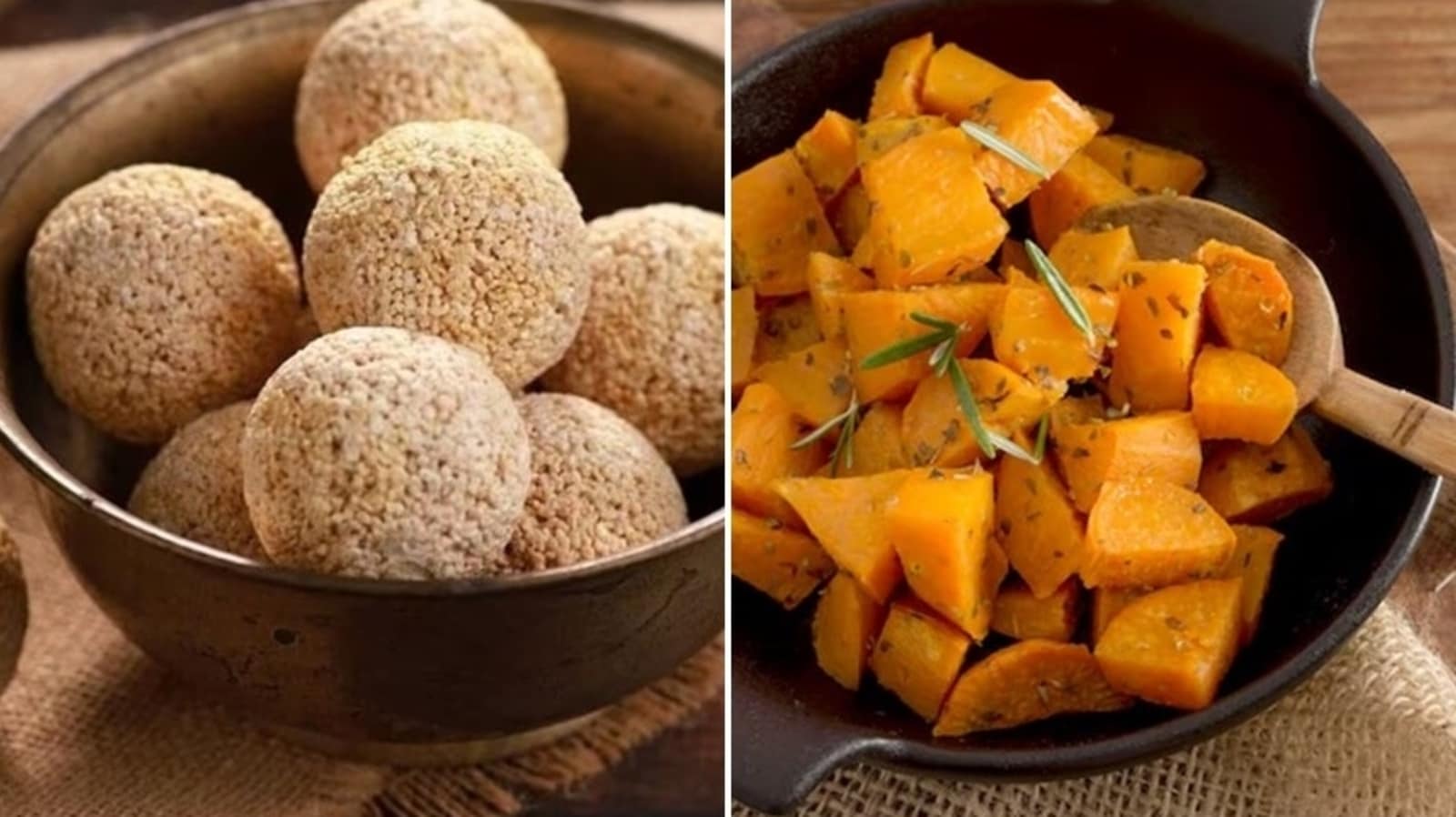
[ad_1]
Chaitra Navratri is beginning in another week’s time on April 9 and Maa Durga devotees have already started making preparations gathering puja samagri, buying vrat-friendly foods and thoroughly cleaning their houses to welcome the goddess home. While Navratri is celebrated four times a year, only Chaitra Navratri and Sharadiya Navratri are celebrated widely across the country. People observe fast from morning to evening for 9 days and conclude it with Kanya Pujan where little girls or kanjaks are worshipped as incarnations of the divine feminine energy. They are also served halwa, puri, chana, and given small gifts. (Also read | Chaitra Navratri 2024: Is Chaitra Navratri starting from April 8 or April 9? Know correct date of the Hindu festival)

When it comes to Navratri diet, it is important to incorporate nutrient-dense options that not only provide energy but also important micronutrients that nourish the body and the mind. One of the popular vrat foods is sabudana which is extensively consumed during Navratri fast in the form of sabudana khichdi, sabudana kheer and tikkis. Sabudana is rich in starch and carbohydrates and is a good source of energy but is high in glycaemic index. It also lacks essential nutrients and can cause spike in blood sugar levels.
“As we celebrate Chaitra Navratri, a period of spiritual rejuvenation and fasting, it’s essential to maintain balance and nourishment for both body and soul. While sabudana (tapioca pearls) has been a traditional fasting staple, it’s high in starch and lacks essential nutrients. While fasting it is important to explore healthier alternatives that not only honour tradition but also promote well-being. Opt for nutrient-dense options like amaranth, buckwheat, water chestnut flour, sweet potatoes, and fruits,” says Nupuur Patil, Nutritionist, Nupuur Patil Fitness.
If you too are fasting during Navratri, here are 5 healthy alternatives to sabudana suggested by Patil that can help keep you full and also boost your overall well-being.
1. Amaranth
Amaranth, also known as ‘rajgira,’ is a powerhouse of nutrients, rich in protein, fibre, and essential vitamins and minerals. Incorporating amaranth into your fasting regimen ensures sustained energy levels and promotes muscle repair and growth. Its gluten-free nature makes it suitable for individuals with gluten sensitivities, offering a versatile base for dishes ranging from porridges to pancakes.
2. Buckwheat
Buckwheat, or ‘kuttu’, is a grain-like seed packed with high-quality protein and complex carbohydrates. Its unique composition makes it an excellent source of energy while keeping you feeling full and satisfied throughout the fasting period. Additionally, buckwheat contains rutin, a potent antioxidant that supports heart health and reduces inflammation. Utilize buckwheat flour to create savoury pancakes, dosas, or even wholesome bread alternatives.
3. Water chestnut flour
Water chestnut flour, derived from the underground corms of water chestnut plants, is a versatile ingredient for Navratri fasting. This gluten-free flour boasts a low glycaemic index, making it an ideal choice for maintaining stable blood sugar levels. It is rich in potassium, promoting electrolyte balance, and supports nerve and muscle function. Explore its culinary potential by incorporating it into baked goods, bread, or traditional Indian sweets like laddoos.
4. Sweet potatoes
Sweet potatoes are a nutritional powerhouse, brimming with vitamins, minerals, and dietary fibre. Their natural sweetness adds a delightful flavour to fasting meals while providing a sustained release of energy. Loaded with beta-carotene, sweet potatoes support vision health and bolster the immune system. Whether roasted, mashed, or grilled, integrating sweet potatoes into your Navratri diet offers a delicious and nutritious boost.
5. Fruits
Fruits are nature’s bounty, offering a diverse range of flavours, textures, and health benefits. During Chaitra Navratri fasting, indulge in an assortment of seasonal fruits such as bananas, apples, pomegranates, and oranges. These fruits are rich in vitamins, antioxidants, and fibre, promoting digestive health and boosting immunity. Enjoy them as whole fruits, in smoothies, or as toppings for salads and desserts to add a refreshing twist to your fasting menu.
Embracing these vrat-friendly choices not only enhances the fasting experience but also contributes to long-term vitality.
[ad_2]
Source link








